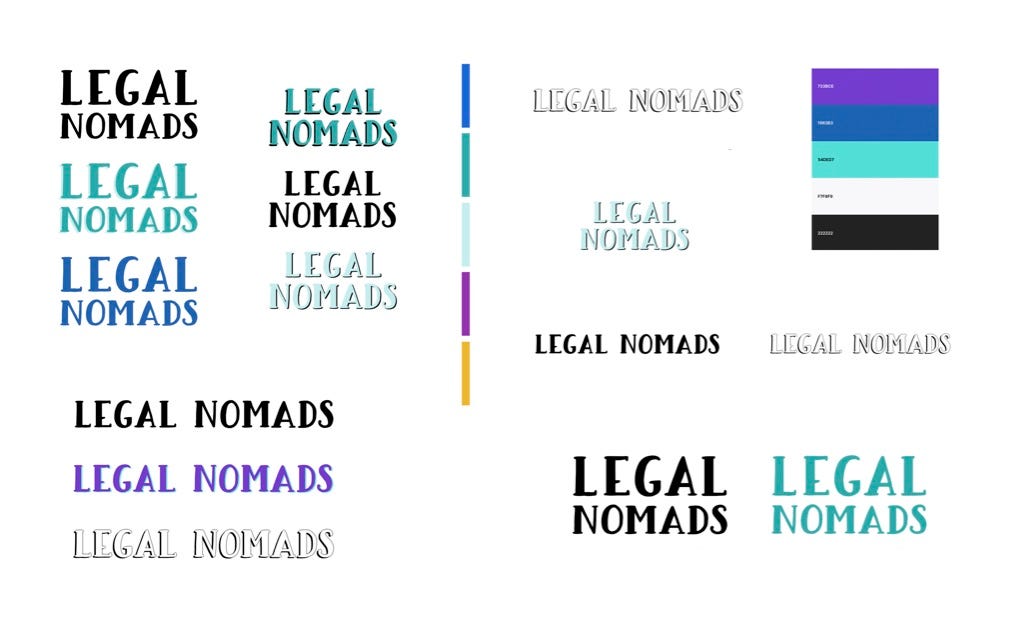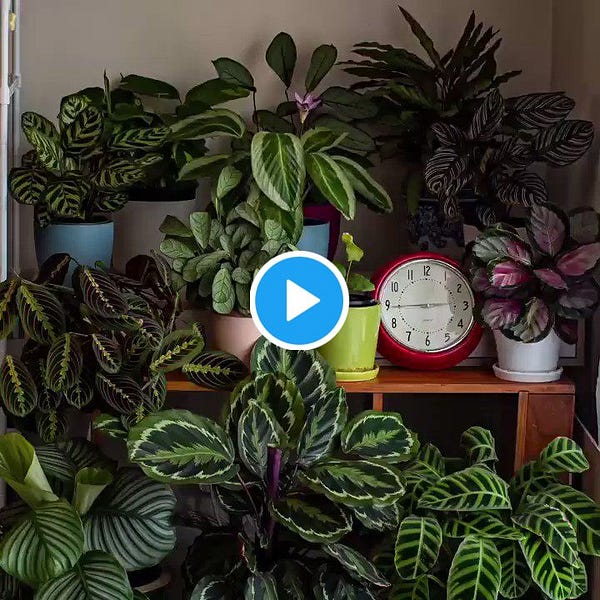The Curious About Everything Newsletter #1
Links I Loved, now rebranded to seep into the nooks and crannies of my new life.
As promised, one of the commitments I made to myself this year was to try and send out a monthly newsletter again. This is the first one of what I hope to be many monthly updates about both my life, and the wonderful work of others around the web.
This list is the next gen of Links I Loved, my prior newsletter.
Brief Personal Updates
My CSF leak is still leaky, and my life is still quite limited. I still can’t tie my shoes. I can, however, use my hours of viable ‘uptime’ wisely, and I’ve decided that this communication with my community is an important spend. I won’t be reiterating this fact monthly, don’t worry. Given that it’s the first of these newsletters, I wanted to share where I’m at off the bat: at this point in time, I have a constellation of complications that make treating the CSF leak difficult. Until the science evolves to treat those underlying complications better, I’m in a holding pattern. My focus has been on what I can change: my mental mindset.
Dealing with a significant disability during a pandemic has put a lot of what I used to take for granted into sharp focus. I thought I took the time to appreciate the preponderance of the small, but as I’ve written elsewhere there’s a sense of catching up that happens when it’s all that is left. I find strangers more impatient with my needs for accommodation, more caught up in their own survival to the detriment of my own. I understand it, of course, but it doesn’t help me (or anyone else dealing with significant disability) feel safe. At a time where some of the narrative is, “well just let the vulnerable stay home” and many seemingly disregard the ways that healthcare workers are putting their lives at risk to keep us safe, it’s hard not to feel left behind at times.
With the help of Ella, the wonderful artist who inks my hand-drawn food maps, I am in the process of redesigning the Legal Nomads site and logo, as well as finalizing the cover for the podcast I hope to launch in 2021. A draft of the logos I’m looking at below, with a “font family” that we will use for each of those projects so there’s some continuity within them. I’m excited.
I’ve been working with a great audio engineer to twin certain articles with audio versions of my writing. The request came from readers who found reading too difficult for their physical conditions, and wanted an audio option. I have been recording them myself, and it’s good practice for my upcoming podcast. So far, I’ve got two up: How to Get Through Terrible Times and Learning to Deal with Chronic Pain.
Best of the Web, October-November 2020
1. 'Secret Life Of Groceries' Shines A Light On Bounty's Dark Side | NPR, November 7. By John Henning Schumann
Even before the pandemic added stress to grocery store staff, keeping shelves stocked took a heavy toll on the whole supply chain in the United States, says author Benjamin Lorr. This interview with him, about his book The Secret Lives of Grocery Stores, is worth a read.
The grocery store is a miracle. It offers a continuous, dreamlike bounty of products at prices that get lower each year, even as the quality gets higher and higher. And as a customer, this bounty all appears completely frictionless, like some suburban American birthright. Of course, from the inside, it is the opposite of frictionless. It requires tremendous power to maintain. And when you scratch the surface of that power, you realize there is something slightly menacing underneath it. And if you scratch further, you get suffering — from our factory-farmed animals to the many workers in our food supply chains.
2. Could Listening to the Deep Sea Help Save It? | New York Times, November 11. By Sabrina Imbler.
Fascinating piece about the soundscape of the ocean and how "a hydrothermal vent’s acoustical calling card" reveals its biodiversity. Acousticians believe that “sound may be the quickest, cheapest way to monitor one of the most mysterious realms of the ocean. A database of deep-sea soundscapes could provide researchers with baseline understanding of healthy remote ecosystems, and singling out the sounds of communities or even individual species can inform scientists when populations are booming.” Can the totality of deep-sea sounds (human, animal and geological) hold the key to its conservation?
3. An Oral History of 'Marge vs The Monorail', the Episode That Changed 'The Simpsons' | Vice Magazine, November 5. By Sean Cole
Inarguably the best episode of the Simpsons, this oral history of Marge vs. the Monorail is a perfect balm for the insanity of the news cycle and includes this tidbit I never knew of prior:
We [initially] offered the part to George Takei. He’d been on the show already and he was a great guest, a really fun guy to have around, but he was on the committee of a mass transit project in Los Angeles and he didn’t want to make fun of monorails. So, because we were already thinking Star Trek, we decided to ask Leonard Nimoy. We didn’t think we’d get him, but we did. He came in and he was game to do anything. He was game to make fun of himself.
4. Other countries have social safety nets. The U.S. has women.| Substack, November 11. By Anne Helen Petersen
Is it too meta to link to someone else’s Substack? I hope not, because this piece is an important read, shining some light on the systemic inequities in US society that further marginalize those who need help the most.
The pandemic came along and ripped a giant hole through what little safety net we did have to support women and especially mothers in the U.S. It’s closed the childcare centers and schools mothers rely on for childcare; it’s made it more difficult for mothers to rely on other people and organizations they might usually turn to for support. And because of the pandemic’s disproportionate impact on women’s careers, it has also made it more difficult for unpartnered mothers to support their families and for mothers in difficult or dangerous relationships to consider leaving and going out on their own.
5. No One is Listening to Us | The Atlantic, November 13. By Ed Yong
Ed Yong's newest, about the exhaustion of healthcare workers in America and how patients' odds of survival plummet when there are insufficient people to care for them.
What people focusing on the death rate alone don't seem to realize is that an overcrowded hospital system doesn't just mean higher odds of dying of COVID-19 if hospitalized, it also means less basic care in the event of trauma or accidents, crashes, and more. When the system overloads, it's not just COVID patients who will suffer.
6. Shedding Light | Guernica Magazine, November 2. By Pamela Petro
Beautiful, whimsical piece about dusk and all that its contemplation brings to the human soul.
It is dusk’s quality of thinness that bends our minds toward environmental empathy, and that’s what interests me. In the half-light, the simple task of seeing requires both stepping further into the self—with memory and imagination supplying what our eyes can’t—and stepping away from ourselves in order to more carefully probe the otherness visible around us. Dusk is like holding a yoga pose; you must extend and retract simultaneously. Viewed through this lens, dusk does nothing less than demand our full and wholehearted engagement with place.

Quote of the month:
“My life has been a quest for knowledge and understanding, and I am nowhere near having achieved that. And it doesn't bother me in the least. I will die without having come up with the answers to many things in life.” Alex Trebek, July 22, 1940 - November 8, 2020.
Short video of the month:
Loved this short time-lapse of plants dancing in the sun.
Until next month!
-Jodi
Did someone forward you this newsletter? If you enjoyed it, please sign up below to receive it monthly:







